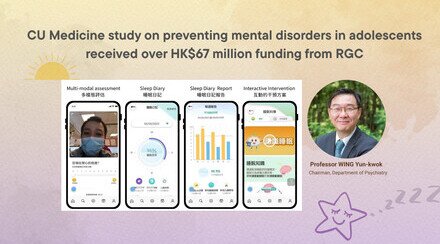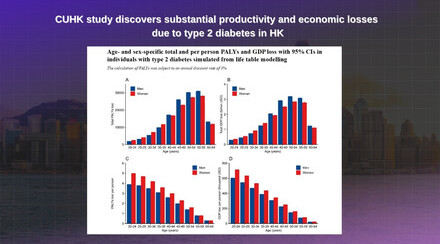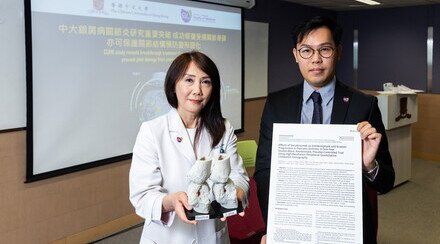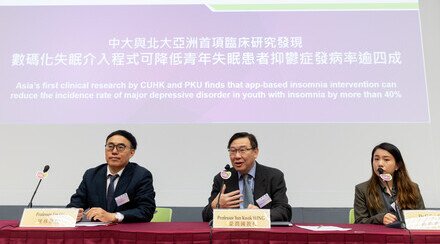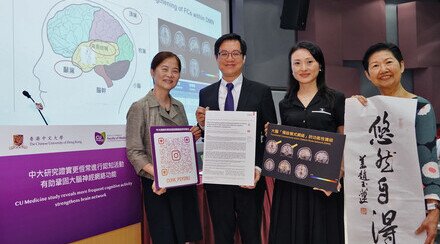CUHK Launches Territory-wide Sleep Health Education Campaign to Promote Healthy Sleep and Healthy School Life
Insufficient sleep is a very common problem among city dwellers nowadays, particularly in Hong Kong with a hectic lifestyle. The problem does not only exist in adults, but is also seen in children and adolescents whose sleep duration is often affected by school schedules as well as academic, social and recreational activities. The Departments of Psychiatry, Paediatrics and Medicine & Therapeutics at The Chinese University of Hong Kong (CUHK) are launching a territory-wide school-based sleep health education and intervention campaign in local primary and secondary schools to promote healthy sleeping habits among students.

(From left) Prof. Alice Pik Shan KONG, Associate Professor, Division of Endocrinology and Diabetes, Department of Medicine and Therapeutics; Prof. Yun Kwok WING, Professor, Department of Psychiatry and Prof. Albert Martin LI, Professor, Department of Paediatrics, CUHK explained how the territory-wide Sleep Health Education and Intervention Campaign in local primary and secondary schools promotes healthy sleeping habits among students.
Research results in different countries have shown that inadequate sleep among school-aged children and adolescents is associated with a variety of adverse repercussions, including minor mood disorders, behavioral problems, as well as academic deterioration. A number of empirical and pathophysiological researches also suggest that sleep curtailment will lead to metabolic and endocrine alteration, increased cardiovascular, obesity and diabetes risk, as well as impaired daytime cognitive function. As a result, there is a growing concern of sleeping habits and problems among children and adolescents.
With close collaboration among various specialties, the research team at CUHK conducted extensive studies on sleep-related health problems in children and adolescents over the last 10 years. The territory-wide school-based sleep health education and intervention campaign aims to develop healthy sleeping habits among local primary and secondary school students, and to better understand sleep-related health problems, thereby enhancing students' physical and mental well-being, academic performance and behavior.
As the pioneer of sleep education, CUHK will also echo the World Sleep Day 2012 (16 March) to raise awareness of the importance of sleep quality, and to urge the public, especially children and adolescents, to give more attention to sleep duration and quality.

CUHK's research team, some of the students receiving awards from the Healthy Sleep Painting Competition and Healthy Sleep Slogan Competition of the territory-wide Sleep Health Education and Intervention Campaign, together with their school headmasters and teachers.










